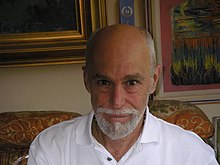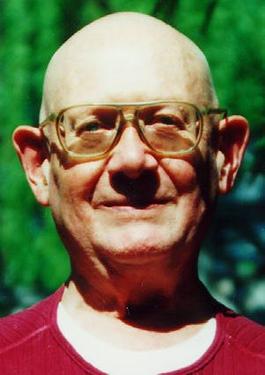
Philip Glenn Whalen was an American poet, Zen Buddhist, and a key figure in the San Francisco Renaissance and close to the Beat generation.

Robert Baker Dairyu Chotan Aitken Rōshi was a Zen teacher in the Harada-Yasutani lineage. He co-founded the Honolulu Diamond Sangha in 1959 together with his wife, Anne Hopkins Aitken. Aitken received Dharma transmission from Koun Yamada in 1985 but decided to live as a layperson. He was a socialist advocating social justice for homosexuals, women and Native Hawaiians throughout his life, and was one of the original founders of the Buddhist Peace Fellowship.
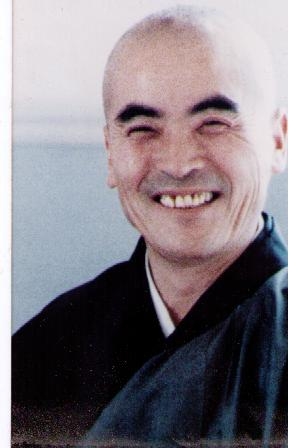
JikaiDainin Katagiri, was a Sōtō Zen priest and teacher, and the founding abbot of Minnesota Zen Meditation Center in Minneapolis, Minnesota, where he served from 1972 until his death from cancer in 1990. He is also the founder of Hokyoji Zen Practice Community in Eitzen, Minnesota. Before becoming first abbot of the Minnesota Zen Meditation Center, Katagiri had worked at the Zenshuji Soto Zen Mission in Los Angeles and had also been of great service to Shunryu Suzuki at the San Francisco Zen Center, particularly from 1969 until Suzuki's death in 1971. Katagiri was important in helping bring Zen Buddhism from Japan to the United States during its formative years. He is also the credited author of several books compiled from his talks.
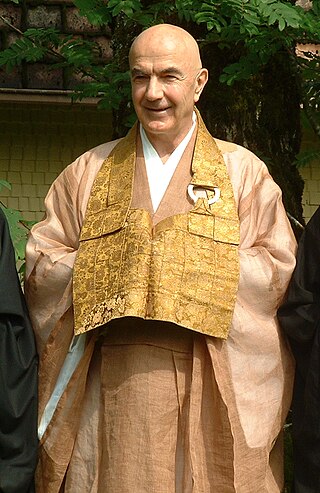
Richard Dudley Baker is an American Soto Zen master, the founder and guiding teacher of Dharma Sangha—which consists of Crestone Mountain Zen Center located in Crestone, Colorado and the Buddhistisches Studienzentrum (Johanneshof) in Germany's Black Forest. As the American Dharma heir to Shunryu Suzuki, Baker assumed abbotship of the San Francisco Zen Center (SFZC) shortly before Suzuki's death in 1971. He remained abbot there until 1984, the year he resigned his position after it was disclosed in the previous year that he and the wife of one of SFZC's benefactors had been having an ongoing affair. Despite the controversy connected with his resignation, Baker was instrumental in helping the San Francisco Zen Center to become one of the most successful Zen institutions in the United States.
A Jewish Buddhist is a person with a Jewish background who believes in the tenets of a form of Buddhism.

John Daido Loori was a Zen Buddhist rōshi who served as the abbot of Zen Mountain Monastery and was the founder of the Mountains and Rivers Order and CEO of Dharma Communications. Daido Loori received shiho from Taizan Maezumi in 1986 and also received a Dendo Kyoshi certificate formally from the Soto school of Japan in 1994. In 1997, he received dharma transmission in the Harada-Yasutani and Inzan lineages of Rinzai Zen as well. In 1996 he gave dharma transmission to his student Bonnie Myotai Treace, in 1997 to Geoffrey Shugen Arnold, and in 2009 to Konrad Ryushin Marchaj. In addition to his role as a Zen Buddhist priest, Loori was an exhibited photographer and author of more than twenty books and was an avid naturalist.

Ko Un is a South Korean poet whose works have been translated and published in more than fifteen countries. He had been imprisoned many times due to his role in the campaign for Korean democracy and was later mentioned in Korea as one of the front runners for the Nobel Prize in Literature.
Kim Suyeong was a Korean poet.
Gil Fronsdal is a Norwegian-born, American Buddhist teacher, writer and scholar based in Redwood City, California. He has been practicing Buddhism of the Sōtō Zen and Vipassanā sects since 1975, and is currently teaching the practice of Buddhism in the San Francisco Bay Area. Having been taught by the Vipassanā practitioner Jack Kornfield, Fronsdal is part of the Vipassanā teachers' collective at Spirit Rock Meditation Center. He was ordained as a Sōtō Zen priest at the San Francisco Zen Center in 1982, and was a Theravāda monk in Burma in 1985. In 1995, he received Dharma transmission from Mel Weitsman, the abbot of the Berkeley Zen Center.

Hakuryu Sojun Mel Weitsman, born Mel Weitsman, was an American Buddhist who was the founder, abbot and guiding teacher of Berkeley Zen Center located in Berkeley, California. Weitsman was a Soto Zen roshi practicing in the lineage of Shunryu Suzuki, having received Dharma transmission in 1984 from Suzuki's son Hoitsu. He was also a co-abbot of the San Francisco Zen Center, where he served from 1988 to 1997. Weitsman was also editor of the book Branching Streams Flow in the Darkness: Zen Talks on the Sandokai, based on talks given by Suzuki on the Sandokai.

Berkeley Zen Center (BZC), temple name Shogakuji, is an Sōtō Zen Buddhist practice centre located in Berkeley, California currently led by Hozan Alan Senauke. An informal affiliate to the San Francisco Zen Center (SFZC), BZC was founded in 1967 by Sojun Mel Weitsman and Shunryu Suzuki as a satellite group for the SFZC. Despite founding the centre, Weitsman was not installed as an abbot there until 1985, one year after receiving Dharma transmission from Hoitsu Suzuki. Weitsman's Dharma heir, Alan Senauke, lives on-site with his wife Laurie Senauke and also works for the Buddhist Peace Fellowship. Another former teacher at BZC was Maylie Scott, who died in 2001. In 1969 Zenkei Blanche Hartman began sitting zazen at BZC, receiving Dharma transmission from Weitsman in 1988. In 1979 the centre relocated to its current location on Russell Street—and today houses a small group of residents who live on site. BZC has an active community and a full schedule of zen service, student talks, dharma talks, and zazen.

Kazuaki Tanahashi is an accomplished Japanese calligrapher, Zen teacher, author and translator of Buddhist texts from Japanese and Chinese to English, most notably works by Dogen. He first met Shunryu Suzuki in 1964, and upon reading Suzuki's book Zen Mind, Beginner's Mind he stated, "I could see it's Shobogenzo in a very plain, simple language." He has helped notable Zen teachers author books on Zen Buddhism, such as John Daido Loori. A fellow of the World Academy of Art and Science—Tanahashi is also an environmentalist and peaceworker.
Kim Young-moo was a South Korean poet, literary critic and translator born in Paju near Seoul.

The Hartford Street Zen Center, temple name Issan-ji, is a Soto Zen practice-center located in the Castro district of San Francisco.
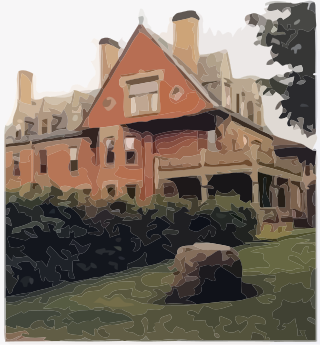
The phrase Zen center was coined by American students of Shunryu Suzuki in the mid-twentieth century, and the San Francisco Zen Center became the first Zen center, incorporating in 1962. Neither temples nor monasteries, Zen centers occupy a unique place in the historical development of Zen Buddhism and of Buddhism in the United States.
The Pacific Zen Institute (PZI), is a Zen Buddhist school centered in Santa Rosa, California, with affiliates in Oakland, San Mateo, Santa Barbara, and Waco, Kentucky. Its students live and practice throughout North America, South America, and Asia. Established in 1999, Pacific Zen's stated mission is to "create a culture of transformation through meditation, koans, conversation, and the arts." Its founding director, John Tarrant, was the first dharma heir to Robert Baker Aitken, in the line of the Sanbo Kyodan school of koan Zen.
Dairyu Michael Wenger is a Sōtō Zen priest and current guiding teacher of Dragons Leap Meditation Center in San Francisco. Prior to establishing Dragons Leap in 2012, Wenger served as Dean of Buddhist Studies at the San Francisco Zen Center (SFZC) in San Francisco, California—where he has been a member since 1972. A Dharma heir of Sojun Mel Weitsman, Wenger is also a former president of the SFZC where he continues to serve on the Elders Council. He received his M.A. from The New School in New York, New York.
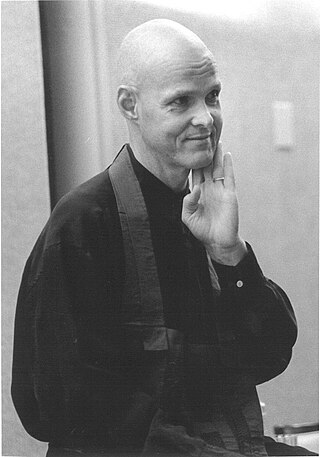
Tenshin Zenki Reb Anderson is an American Buddhist who is a Zen teacher in the Sōtō Zen tradition of Shunryu Suzuki. He is a Senior Dharma teacher at the San Francisco Zen Center and at Green Gulch Farm Zen Center in Marin County, California, where he lives. According to author James Ishmael Ford, "Reb Anderson is one of the most prominent of contemporary Western Zen teachers."
Zen was introduced in the United States at the end of the 19th century by Japanese teachers who went to America to serve groups of Japanese immigrants and become acquainted with the American culture. After World War II, interest from non-Asian Americans grew rapidly. This resulted in the commencement of an indigenous American Zen tradition which also influences the larger western (Zen) world.
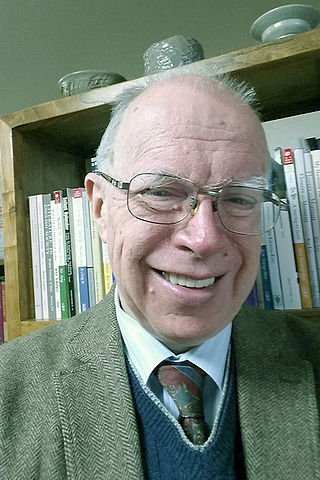
Brother Anthony is a translator, scholar, and member of the Taizé Community. He was born Anthony Graham Teague in the United Kingdom but has since become a naturalized citizen of South Korea under the Korean name An Sonjae (Korean: 안선재).
